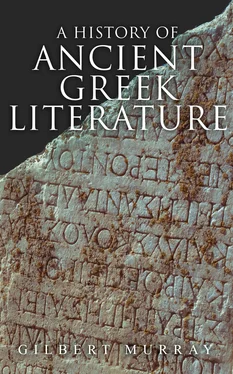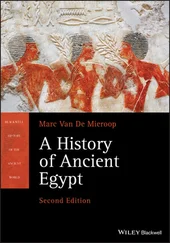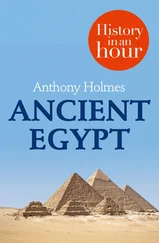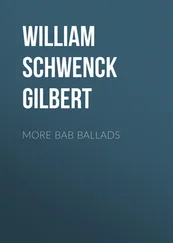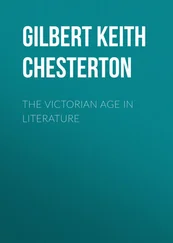There is thus no disparagement to the Epic dialect in saying that, as it stands, it is no language, but a mixture of linguistically-incongruous forms, late, early, and primæval.
There are first the Atticisms. Forms like Tηδη ἕως, ντκὠντες, can only have come into the poems on Attic soil, and scarcely much before the year 500 B.C. At least, the fragments of Solon's Laws have, on the whole, a more archaic look. But for the purposes of history we must distinguish. There are first the removable Atticisms. A number of lines which begin with ἕως will not scan until we restore the Ionic form ηος. That is, they are good Ionic lines, and the Attic form is only a mistake of the Attic copyist. But there are also fixed Atticisms -- lines which scan as they stand, and refuse to scan if turned into Ionic; these are in the strict sense late lines; they were composed on Attic soil after Athens had taken possession of the epos.
Again, there are 'false forms' by the hundred -attempts at a compromise made by an Athenian reciter or scribe between a strange Ionic form and his own natural Attic, when the latter would not suit the metre. The Ionic for 'seeing' was óρέοντες, the Attic óρωντες -three syllables instead of four; our texts give the false óροωντες -- i.e. they have tortured the Attic form into four syllables by a quaver on the ω. Similarly σπεíονς is an attempt to make the Attic σπεους fill the place of the uncontracted σπέεος, and εὺχετάαι is an elongated ενχετâσθαὶ. Spelling, of course, followed pronunciation; the scribe wrote what the reciter chanted.
The historical process which these forms imply, can only have taken place when Athens looked nowhere outside herself for literary information, when there were no Ionic-speaking bards to correct the Attic bookseller. Some of them, indeed, can only have ceased to be absurd when the Koinê, the common literary language, had begun to blur the characters of the real dialects and to derive everything from the Attic standard. That is, they would date from late in the fourth century.
But to eliminate the Attic forms takes us a very little way; there is another non-Ionic element in ' Homer's' language which has been always recognised, though variously estimated, from antiquity onwards, and which seems to belong to the group of dialects spoken in Thessaly, Lesbos, and the Æolian coast of Asia including the Troad. Forms like 'Aτρεíδαο, Mονσάων for άν πíσνρες for τέσσαρες, intensitives in ἐρφ, adjectives in -εννος, and masses of verbal flexions are proved to be Æolic, as well as many particular words like πολνπάµµοννς, Θερíτµς ἄµνδις.
There is also another earlier set of 'false forms,' neither Æolic nor Ionic, but explicable only as a mixture of the two. κεκλµγοτες is no form; it is an original Æolic κεκλἠγοτες twisted as close as metre will allow it to the Ionic κεκλµγóτε; ἤπντα τέττΙξ, for 'singing cicada,' is the Æolic ἄΠντα brought as near as metre permits to the Ionic ὴπύτµς. Most significant of all is the case of the Digamma or Vau, a W-sound, which disappeared in Ionic and Attic Greek, both medially (as in our Norwich, Berwick ) and initially (as in who, and the Lancashire 'ooman ). It survived, however, in Doric inscriptions, and in such of the Æolic as were not under Ionian influence, till the fifth and sometimes the fourth century. It is called in antiquity the Æolic letter.' Now there are 3354 places in the poems which insist on the restoration of this Vau -- i.e. the lines will not scan without it; 617 places, on the other hand, where in ancient Æolic it ought to stand, but is metrically inadmissible. That is, through the great mass of the poems the habit and tradition of the Æolic pronunciation is preserved; in a small part the Ionic asserts itself.
These facts have been the subject of hot controversy; but the only effective way to minimise their importance is to argue that we have no remains of Æolic of the seventh century, and that the apparent Æolisms may be merely 'old Greek' forms dating from a period before the scattered townships on the coast of Asia massed themselves into groups under the names of Iônes and Aioleis -- an historical hypothesis which leads to difficulties.
It is not disputed that the 'Æolic' element is the older. Philology and history testify to it, and weight must be allowed to the curious fact, that to turn the poems into Æolic produces the rhymes and assonances characteristic of primitive poetry in numbers far too large to be the result of accident. And it holds as a general rule that when the Æolic and Ionic forms are metrically indifferent -- i.e. when the line scans equally well with either -- the Ionic is put; when they are not indifferent, then in the oldest parts of the poems the æolic stands and the Ionic cannot, in the later parts the Ionic stands and the æolic cannot. And further, where the two dialects denote the same thing by entirely different words, the æolic word tends to stand in its native form; e.g. λα + ̑ος, 'people,' keeps its a, because the Ionic word was δημος. For a 'temple' the Ionic νημος stands everywhere, but that is just because temples are a late development; the oldest worship was at altars in the open air. 13
There are many exceptions to these rules. Dr. Fick of Göttingen, who has translated all the 'older parts' of Homer back to a supposed original Æolic, leaving what will not transcribe as either late or spurious, has found himself obliged to be inconsistent in his method; when Fιδέσθαι occurs without a F he sometimes counts it as evidence of lateness, sometimes alters it into íκέσΘαι. In the same way a contraction like νικωντεσ may represent an Æolic νíκανς from νίκαμὶ, or may be a staring Atticism. When we see further that, besides the Ionisms which refuse to move, there are numbers of Æolisms which need never have been kept for any reason of metre, the conclusion is that the Ionising of the poems is not the result of a deliberate act on the part of a particular Ionic bard -- Fick gives it boldly to Kynæthus of Chios -- but part of that gradual semi-conscious modernising and re-forming to which all saga-poetry is subject. The same process can be traced in the various dialectic versions of the Nibelungenlied and the Chanson de Roland. A good instance of it occurs in the English ballad of Sir Degrevant, where the hero 'Agravain' has not only had a D put before his name, but sometimes rhymes with 'retenaunce' or 'chaunce' and sometimes with 'recreaunt' or 'avaunt.' It comes from an AngloNorman original, in which the Sieur d'Agrivauns formed his accusative d'Agrivaunt. 14
THE SUBJECT-MATTER OF HOMER
The evidence of language is incomplete without some consideration of the matter of the poems. What nationality, for instance, would naturally be interested in the subject of the Iliad? The scene is in the Troad, on Æolic ground. The hero is Achilles, from Æolic Thessaly. The chief king is Agamemnon, ancestor of the kings of Æolic Kymê. Other heroes come from Northern and Central Greece, from Crete and from Lycia. The Ionians are represented only by Nestor, a hero of the second rank, who is not necessary to the plot.
This evidence goes to discredit the Ionian origin of the main thread of the Iliad; but does not the same line of argument, if pursued further, suggest something still more strange -- viz., a Peloponnesian origin? Agamemnon is king of Argos and Mycenæ; Menelaos is king of Sparta; Diomêdes, by some little confusion, of Argos also; Nestor, of Pylos in Messenia. The answer to this difficulty throws a most striking light on the history of the poems. All these heroes have been dragged down to the Peloponnese from homes in Northern Greece.
Читать дальше
